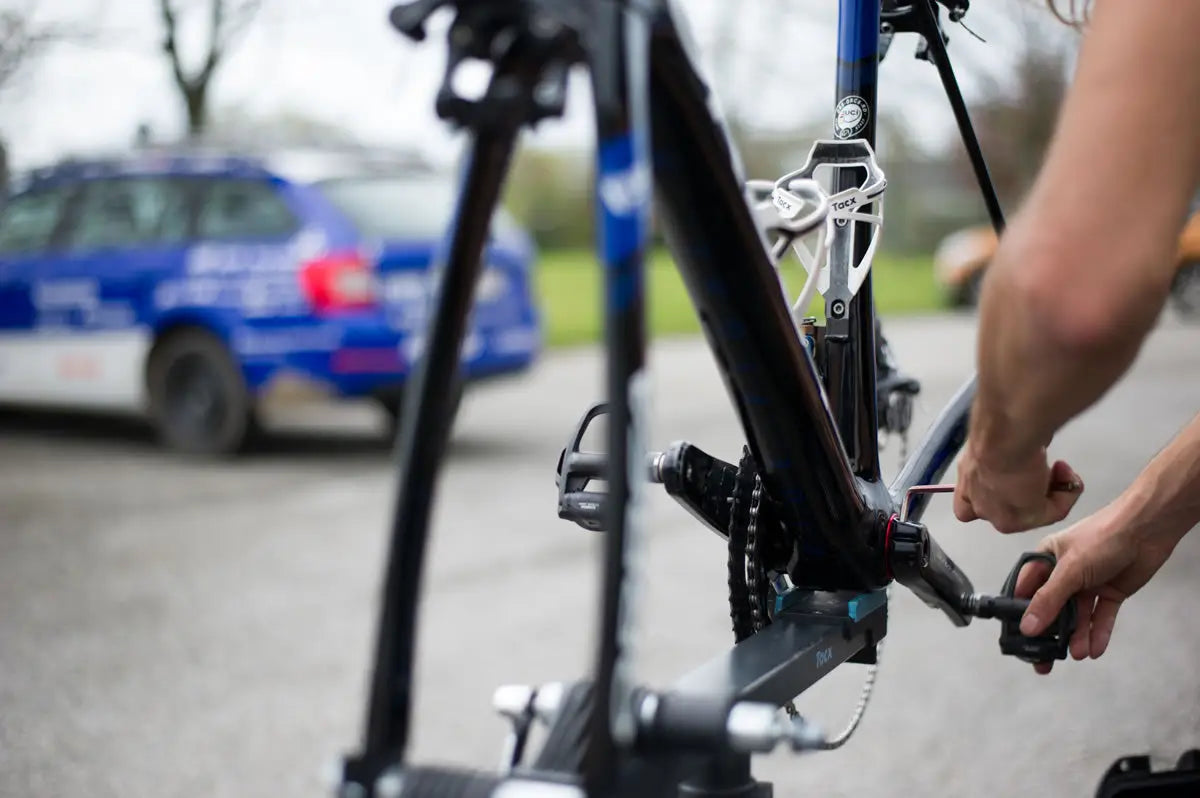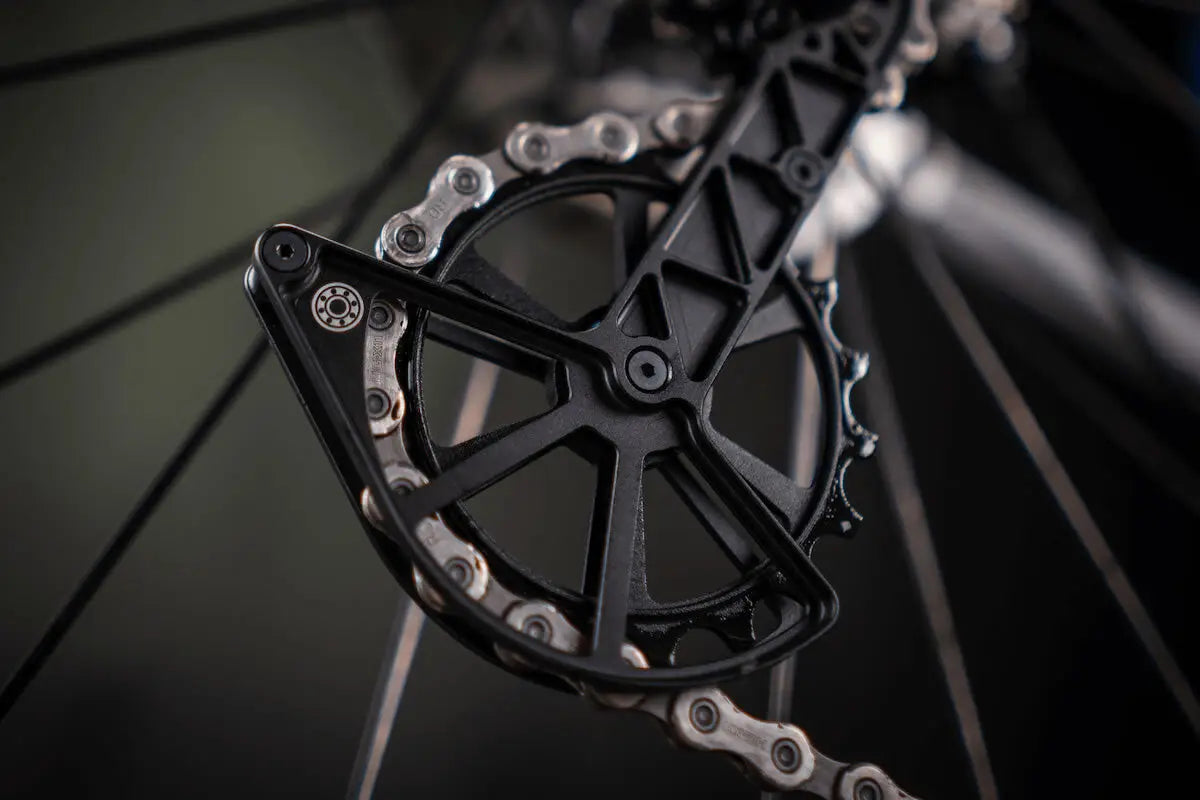Throughout my former life as a bike mechanic and my current with Kogel, I have been exposed to riders of all levels in skills, fitness, spending and approach to bike service.
The first thing I have learned is (try) not to judge. Riders want to bring in their bike every Monday for cleaning and lubing? Fine. Riders want to run the bike into the ground, bring it in after six months and don’t mind paying for a huge overhaul? Also fine.
I have seen people carry in almost their entire paycheck to buy a new set of wheels and leave a tip. I have seen people bring in their $12K bike, complain that charging $30 for a job that took me an hour was ridiculous and then drive off with the bike on the back of their expensive German sports car. Everyone is different and it’s all good.
Often people need a bit more education and that is part of the mechanic’s job. Some weekend warriors meticulously service their bikes as if they were restoring a Picasso. On the flip side, a professional athlete once told me that a tune-up was not necessary before the London Olympics, because “the bike is just what gets me from the water to my running shoes”.

Everyday Expectations
When it comes to product, professionals sometimes need to advise their clients against what they want to hear. Bike fitters have to advise that Peter Sagan’s bike fit does not work for a fair-weather rider.
Some customers want Max Verstappen’s Red Bull Formula 1 car for their daily commute, not realizing that an F1 car overheats below 100mph and spends a week in the garage for every 90 minutes on the track. My point is: what works for the elite professionals is not necessarily the best for most of us.
It's all about the service schedule
A cool thing about racing bicycles (as opposed to F1 cars) is that you and I can ride the exact same products as the guys in the Tour de France. It is in the UCI rules that every product used in the World Tour must be commercially available as a production model. Once the products are the same, the difference between your Pinarello F12 XLight and the one used by Egan Bernal to win the yellow jersey is all about the mechanic.
When the product is as good as a manufacturer can make it, it is up to the rider and their mechanic to decide how much time and effort will be spent on service. As a result of that, how the components will be set up for ultimate performance. In the case of bearings: a bike that gets overhauled every week will use a different lubrication than one that gets overhauled before and after the racing season.

Everyday Competitive Strategies
In the world of road and triathlon racing, we see a lot of athletes trying to copy what the top athletes do. For example, using fragile and lightweight parts that might make the difference between first and second place for Tom Dumoulin in a time trial. Pushing the limits could also end in catastrophe.
Think of super lightweight tires to race on a pre-swept TT course. Yes, this component choice is worth the risk if there is a rainbow jersey on the line and you know the team car is only three seconds away.
Same tires trying to win an Age Group Ironman? Not so much. You could gain 30 seconds from running the fastest tires or lose 20 minutes because of a flat.
Supporting Everyday Racers
At Kogel we are 100% convinced we make the best products on the market. We realize that athletes and enthusiasts spend hard-earned cash on our products.
Athletes purchasing top level bearing products are probably not the ones that have a personal mechanic work on their bike every time they are sipping on a recovery shake.
The Kogel product you take out of the retail packaging is tuned for riders chasing the age group wins and the Cat1 sprint finishes, everyday racers.
Everyday Racers are athletes traveling with their bike case and self-assembling their bike before each race. Also the ones stressing whether or not TSA or the baggage handler “handled” their bike box and bent the derailleur hanger.
Everyday racers most likely do not service their bearings every Monday, but still need everything to be reliable.
Everyday Racing – a product philosophy
Kogel’s Everyday Racing philosophy means we flat-out refuse to prep your products to perform best on the retail floor. You will not find dry bearings and a bottle of lube in the packaging for a DIY solution. Instead we will ask you to break in your bearings for a week or so to get to ultimate performance that’s built to last.
By making smart decisions in our design process, we can make a product that is bomb proof and still performs very similar to the products you find at the fore front in Kona or Paris.
For example:
- Adding 20 grams to a derailleur cage to make it stiff instead of flexible? Worth it.
- Using grease in bearings and asking our customers to break in their product for a week to get to the lowest friction? Worth it.
- Add 10 grams to a bottom bracket to add a ridge on the inside that can catch a tool when you are trying to remove the bottom bracket? You catch my drift.
Everyday Racing is a philosophy for the riders that pay their entry fees in races and are not on a million-dollar sponsor contract.
For the riders that are on such a contract, or anyone looking for a race-day-only setup: give me a call, I will work with your mechanic to make sure we set you up with the fastest one-day bearings in the start box.

